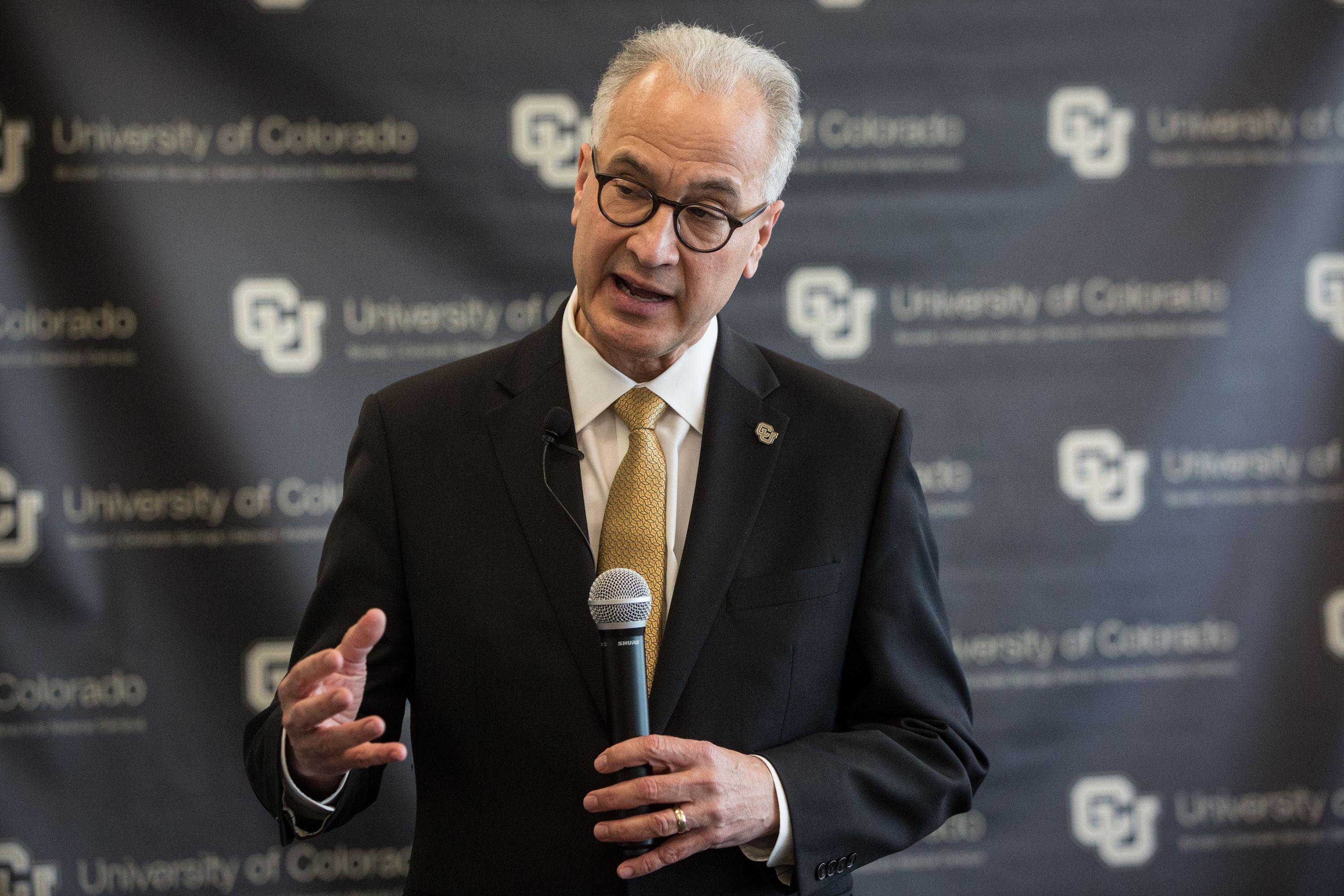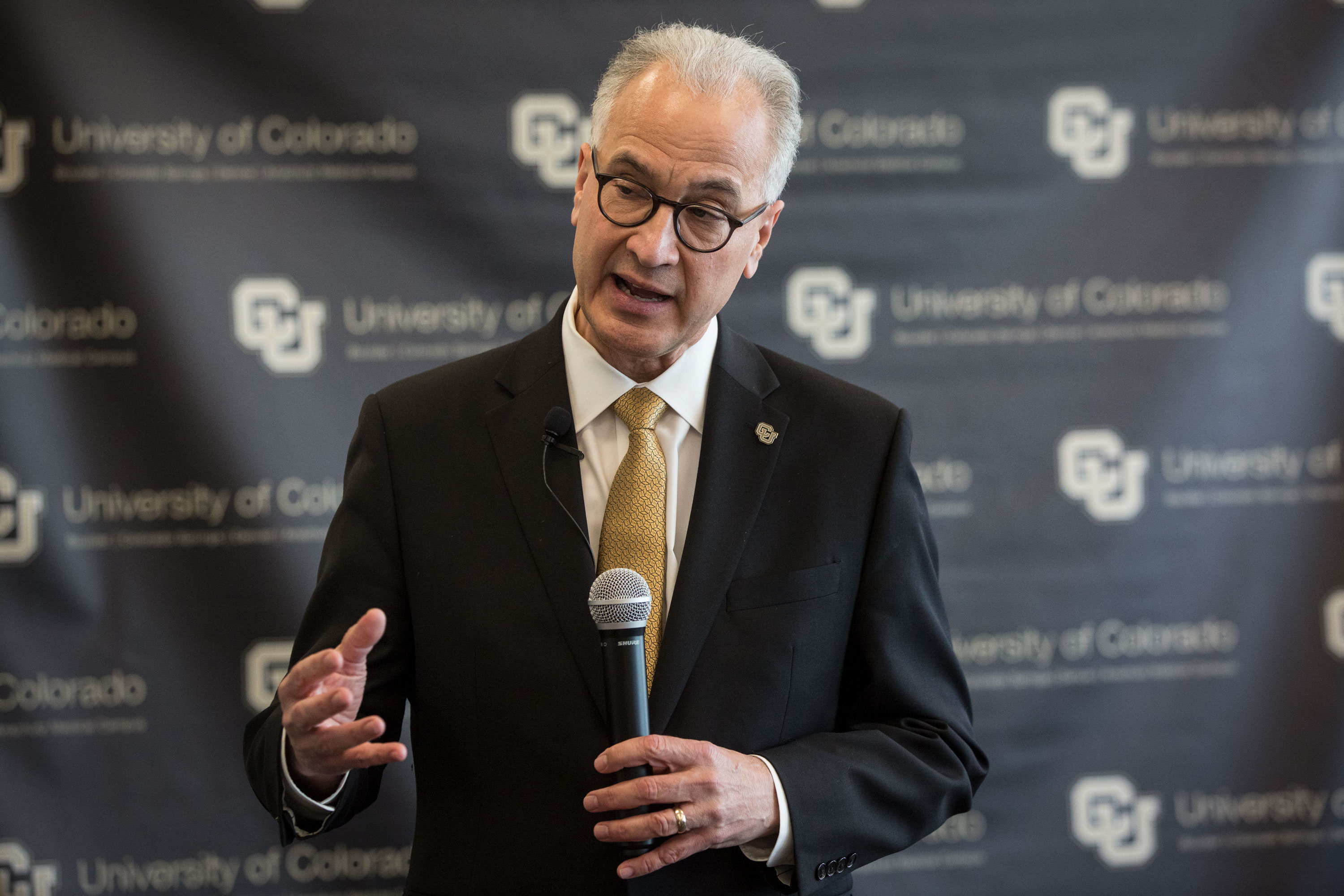

The University of Colorado Board of Regents voted Thursday to confirm Mark Kennedy as the president of the four-campus system.
The vote took place after a 1 p.m. closed-door executive meeting at CU's Anschutz Medical Campus in Aurora. He was confirmed in a 5-4 party-line vote.
Kennedy, the current president of the University of North Dakota, was the lone finalist named to replace Bruce Benson as the head of the CU system. Benson, president since 2008, will retire in July.
Since the Board of Regents announced Kennedy as their pick in April, he faced pushback from some students and faculty for everything from his congressional votes opposing abortion, to his ability to lead a system much more complex and larger than the University of North Dakota. Kennedy was a Minnesota congressman from 2001 to 2007.
Johnnie Nguyen, a CU law student and one of the class presidents, said he was disheartened by Kennedy’s confirmation and the partisan vote.
“This shouldn't be a political issue. This should be an issue for students, staff, faculty and the community members of CU,” he said. “I just hope to see collaboration, that he’ll actually meet and talk with us and he'll really be open-minded to taking in kind of new projects that are from the community and really supporting that.”

Nguyen hopes Kennedy will lobby against The Taxpayer’s Bill of Rights because he said funding for higher education in Colorado is an issue. He was frustrated that regents asked for feedback on Kennedy, but did not do anything when they received many negative responses.
“I hope that I'm wrong and I hope that he is more collaborative, more inclusive than people are currently taking him as,” he said.
In a statement, LGBTQ advocacy center One Colorado said although the group didn’t endorse Kennedy, it will continue to work on inclusivity for all with the University of Colorado.
“One Colorado will be here to hold Mark Kennedy accountable for his commitment to not take the University backwards,” executive director Daniel Ramos said.
CU Boulder Chancellor Philip DiStefano said the campus’ first step following Kennedy’s confirmation will be to have listening sessions with the new president.
“We appreciate Mr. Kennedy’s offer to conduct a listening tour of the campuses to learn more about CU Boulder,” DiStefano said. “When Mr. Kennedy visits our campus, this will be our opportunity to ensure that he is well briefed and understands that we will work to create common goals.”
CU Boulder sophomore Naya O’Reilly said they hope Kennedy supports diverse student centers and clubs. They want to Kennedy to work on helping students access grants and more research opportunities.
“We need to see action rather than just empty words,” they said. “As students, and especially me being a LGBTQIA queer, multiracial person, I'm tired of people in power telling me that they're going to help me and then not do anything.”
In the comment session Thursday ahead of the vote, all the speakers spoke against Kennedy’s hiring.
Kennedy also faced boos and applause as he took the stage April 26 at the Macky Auditorium in Boulder. It was his last stop on a week-long tour to make his pitch for why he is the right man for the job. Faculty representatives and many student groups met his nomination with skepticism and dismay.
“What can you expect from me?” he told the audience in Boulder. “You can expect for me to focus on the four priorities the regents have set forth,” including fiscal responsibility, keeping college affordable and accessible, increasing graduation rates and elevating research.

The tense response may stem in part from the sometimes-opaque process of selecting a new president. As has become standard on some college campuses, no other candidate was named and early reports from the regents indicated they had not completed a full vetting process before releasing Kennedy’s name, although Sue Sharkey and Jack Kroll, the chair and vice chair of the board of regents, denied them.
The CU Board of Regents said the process was thorough and rigorous. After consideration of more than 100 applicants, a 17-member search committee interviewed 10 candidates whose names weren’t publicly disclosed. They advanced six of those names to the Board of Regents, which unanimously selected Kennedy.
“We believe now what we did then – his skills and experience in business, government and higher education would make him a great president of the University of Colorado,” Sharkey and Kroll said in an April statement.
Kennedy’s starting salary as CU’s president is $650,000. After his first year, it goes to $850,000. He also is eligible to earn incentives of up to $200,000. His contract extends through 2022.
He also gets $80,000 for moving and temporary housing expenses.







